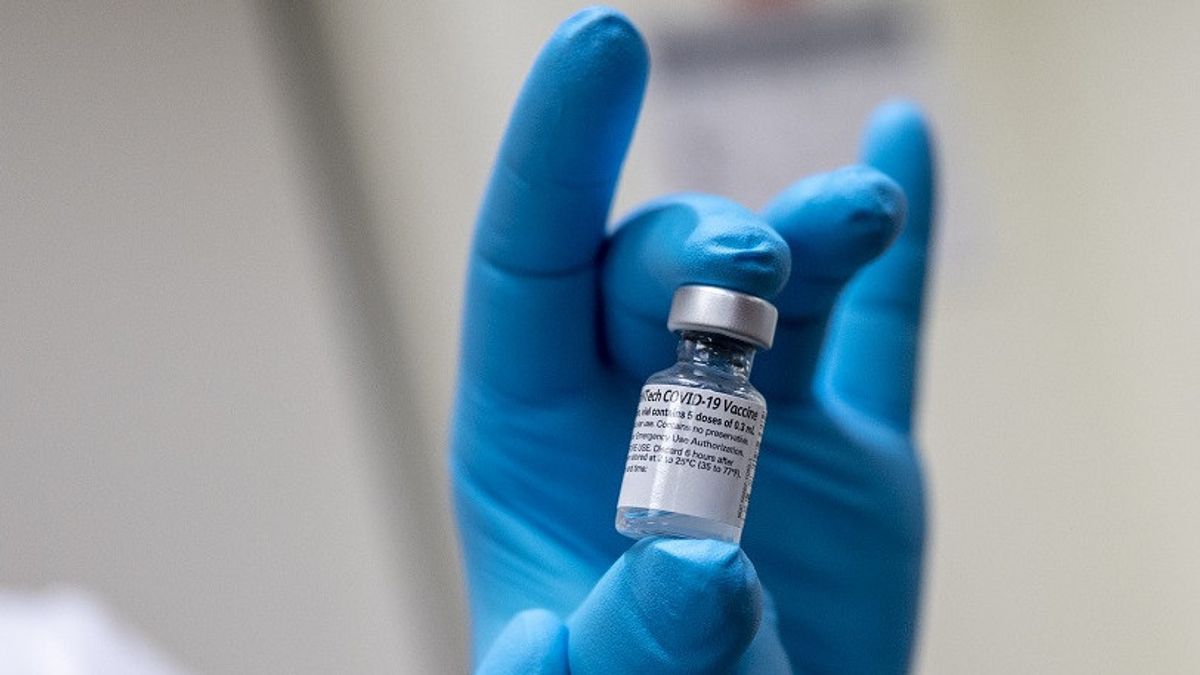JAKARTA - Israeli researchers say a variant of the coronavirus found in South Africa could break through the Pfizer/BioNTech ALERT COVID-19 vaccine to some extent. Although, its prevalence in the country is low and research has not been peer reviewed.
In a study released late last week, researchers compared nearly 400 people who tested positive for COVID-19, fourteen or more days after they received one or two doses of the vaccine, with the same number of patients not vaccinated with the disease. It matches age and gender, among other characteristics.
The South African variant, B.1,351, found about 1 percent of all COVID-19 cases in everyone studied, according to research by Tel Aviv University and Israel's largest healthcare provider, Clalit.
However, among patients who had received two doses of the vaccine, the prevalence rate of that variant was eight times higher than those who were not vaccinated by a ratio of 5.4 percent - 0.7 percent.
This suggests the vaccine was less effective against the South African variant, compared to the original coronavirus and a variant first identified in the UK that covers almost all cases of COVID-19 in Israel, the researchers said.
"We found higher rates of the South African variant among people vaccinated at a second dose, compared to the unvaccinated group. This means the South African variant can, to some extent, penetrate vaccine protection," Adi Stern of Tel Aviv University, Israel told Reuters on Monday, April 12.
However, the researchers warned, the study had only a small sample size of people infected with the South African variant, due to its rarity in Israel.
They also said the study was not intended to infer the overall effectiveness of vaccines against any variant, as it only looked at people who had tested positive for COVID-19, not at the overall infection rate.
Pfizer/BioNTech could not immediately be reached for comment outside business hours. On April 1, Pfizer/BioNTech called their vaccine about 91 percent effective at preventing COVID-19, citing the latest trial data that included participants inoculated for up to six months.
Regarding the South African variant, they said among the study's 800 volunteers in South Africa, where B.1,351 was widespread, there were nine cases of COVID-19, all of which occurred among participants who got a placebo. Of the nine cases, six were among individuals infected with the South African variant.
Some previous research has shown that Pfizer's vaccine is less potent against the B.1.351 variant compared to other variants of the coronavirus, but it still offers a strong defense.
While the results of the study may raise concerns, the low prevalence of south African strains is encouraging, according to Stern.
"Even if the South African variant manages to penetrate the protection of the vaccine, it has not spread widely throughout the population," Stern said, adding that the British variant may 'deter' the spread of the South African strain.
For the record, nearly 53 percent of Israel's 9.3 million population have received two doses of the Pfizer/BioNTech alert COVID-19 vaccine. Israel has largely reopened its economy in recent weeks, as pandemics with rates of infection, severe illness and hospitalization decline sharply.
Meanwhile, about a third of Israelis under the age of 16 have not received the COVID-19 vaccine because they are not yet eligible to receive the vaccine.
The English, Chinese, Japanese, Arabic, and French versions are automatically generated by the AI. So there may still be inaccuracies in translating, please always see Indonesian as our main language. (system supported by DigitalSiber.id)













